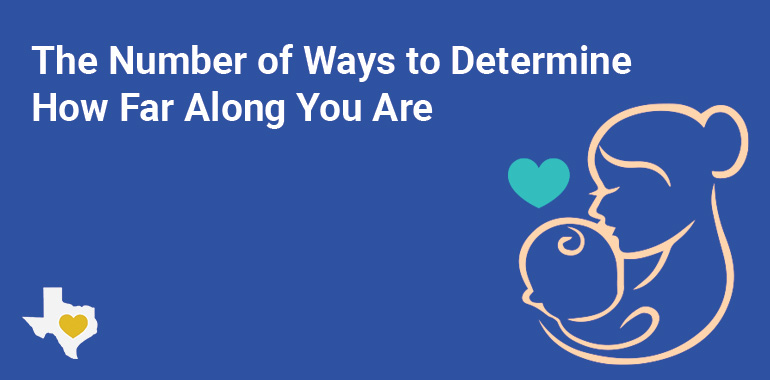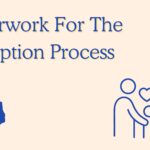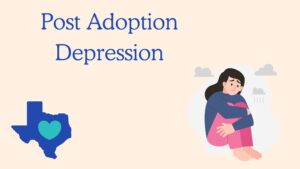
You just found out that you’re pregnant, but you’re confused about one issue: “How far along am I?” If you’re at a point where you’re asking yourself, “How do I know how many weeks pregnant I am?” you have to realize that it can be a little complicated to figure out at first. Why? Well, because all too often, a woman can be many weeks pregnant before she discovers the fact!
How does that happen? How can it happen? As you know, menstrual cycles are not entirely uniform; everyone’s cycle is different. And many women have quite irregular cycles that further exacerbate uncertainty and confusion!
This means you might not realize you’re “late” until the first signs of pregnancy manifest; by the time you take a pregnancy test that reveals the big news, you could already be several weeks into your first trimester.
What is a Due Date?
A due date, also known as an estimated due date (EDD), is the anticipated time when a pregnant woman is likely to give birth to her baby. It is typically calculated based on the first day of the woman’s last menstrual period and takes into account the average length of a full-term pregnancy.
What is an Estimated Due Date?
A pregnancy due date is almost always just an estimate and women often experience a date change. (That’s just how pregnancy works. Babies often come a few days late or early, so having an exact due date is impossible unless you’re scheduled for a c-section.) Using a pregnancy calculator or other method of determining the due date can help give an accurate estimate!
The Meaning of Gestational Age
Gestational age refers to the age of a pregnancy and is usually measured in weeks, starting from the first day of the woman’s last menstrual period. It is an important factor in determining the due date and tracking the progress of the pregnancy.
Gestational age provides a standard measure for monitoring fetal development and is often used by healthcare providers to assess the health and growth of the baby. The average length of gestation is around 40 weeks. This pregnancy timeline allows women to easily calculate pregnancy milestones and know what’s happening in their bodies.
Fetal age, by contrast, refers to the actual age of the baby, beginning at the conception date. It is typically about two weeks less than the gestational age. While gestational age is more commonly used in clinical settings, fetal age can offer a more accurate representation of the baby’s developmental stage.
| Trimester | Gestational Age in Weeks | Fetal Age in Weeks | Development Highlights |
| First | 1–4 | 0–2 | Fertilization and implantation occur. The embryo begins forming basic structures. |
| 5–8 | 3–6 | Heartbeat starts. Limb buds form. Major organs like the brain, heart, and lungs begin to develop. | |
| 9–13 | 7–11 | Facial features develop. Baby begins small movements. Fingernails and toenails start growing. | |
| Second | 14–17 | 12–15 | Gender may be visible on ultrasound. Baby starts practicing sucking and swallowing. |
| 18–22 | 16–20 | First kicks may be felt (quickening). Ears function and the baby can hear sounds. | |
| 23–27 | 21–25 | Baby reacts to sounds and touch. Lungs develop. Skin becomes less transparent. | |
| Third | 28–32 | 26–30 | Rapid brain development. Baby opens eyes and begins to regulate temperature. |
| 33–36 | 31–34 | Baby gains weight. Bones harden. Sleep and wake patterns emerge. | |
| 37–40+ | 35–38+ | Baby is full-term. Organs are mature. Baby positions for birth. Labor can begin at any time. |
How Do I Calculate How Many Weeks Pregnant I Am?
While you may be unable to pinpoint how long you’ve been pregnant right away, that’s not the end of the story. There are several ways to determine how far along you are and calculate your due date. The good news is that not all of them necessitate a trip to the doctor — at least, not right away. Here’s what you can do to discover how long you’ve been pregnant.
Do the Math Yourself
If you’re curious about how to determine how far along you are, it’s not about when you last had sex, conception, or implantation. It’s based on the first day of your most recent normal period. This takes into account how long it takes from ovulation to implantation (about 9 days) and then how soon after pregnancy hormones become detectable.
One of the more common ways to determine how many weeks pregnant you are is to add 280 days from the start date of your last period. This will give you a rough estimate of your baby’s due date. To determine more or less when you got pregnant, you need to do a bit more math. (You may not even need a due date calculator pregnancy device.)
Not to worry, though: It’s simple. Take the number of days since the first day of your last period and divide that number by seven. The result will be an estimate of how many weeks pregnant you are.
Use an Online Due Date Calculator
If you’ve just discovered you’re pregnant and want to know how many weeks pregnant you are, you can use an online due date calculation to figure it out. You will need to know the start date of your last regular period and have a rough idea of how long your average cycle is.
If you’re using this online due date calculator, you’ll put in the calculation method (“Last Period”), the start date of your last period (put in an exact day), and input your cycle length.
So, for instance, if your average cycle is 28 days, and the first day of your last regular period was May 18, 2022, you’ll be told that you’re 5 weeks pregnant; if your cycle is about 21 days, you’ll be told you’re 6 weeks pregnant.
If you don’t know how long your average cycle is, the pregnancy due date calculator will average it out — for a more exact number, get an early ultrasound done.
Get an Ultrasound
Eventually, you’re going to need to visit a doctor for the sake of your own health as well as that of the baby growing inside you. When you visit an OB-GYN, you’ll have an ultrasound done, which will provide you with quite a bit of information. An ultrasound is an excellent tool for determining how far along you are. Getting one as soon as possible is your best bet to remove uncertainty over how many weeks pregnant you are and get an accurate date calculated.
By looking at an ultrasound scan, your doctor can check fetal growth and provide an estimate of how many weeks pregnant you are. With those details in hand, your doctor can determine your baby’s likely due date.
If you’ve decided to place your child for adoption, this information is very important for you and the adoption specialist with whom you’re working.
Frequently Asked Questions
[existing image]
Can I tell how far along I am without knowing my last menstrual period?
Yes, it’s possible to estimate how far along you are in your pregnancy, even if you don’t know the date of your last menstrual period. Healthcare providers can use alternative methods, such as ultrasound scans, to measure the size of the fetus and assess its development.
They may also rely on other indicators, such as the first day of symptoms or the date of a positive pregnancy test, to approximate gestational age.
How many weeks pregnant are you when you get a positive test?
A positive pregnancy test indicates the presence of human chorionic gonadotropin (hCG), a hormone produced by the placenta shortly after implantation occurs. Typically, hCG becomes detectable in urine or blood approximately 10 to 14 days after conception.
So, when you receive a positive pregnancy test result, you are likely around 3 to 4 weeks pregnant, counting from the first day of your last menstrual period.
How do you find out the day you got pregnant?
Determining the exact day of conception, or when you got pregnant, can be challenging since it often occurs within a window of a few days around ovulation. However, if you have been tracking your menstrual cycle and ovulation, you may have a better idea of when conception likely occurred.
Additionally, healthcare providers may use ultrasound dating or other methods to estimate the timing of conception based on fetal development and gestational age. Keep in mind that these estimates may not pinpoint the exact day of conception but provide a general timeframe for when it likely occurred.
What to do when you are unexpectedly pregnant?
Discovering an unexpected pregnancy can be overwhelming, but it’s essential to know that you have options and support available. If you’re considering adoption as an alternative to parenting or abortion, organizations like Texas Adoption Center offer comprehensive assistance and guidance throughout the adoption process.
Texas Adoption Center provides support services to women facing unplanned pregnancies. Whether you’re exploring adoption as a choice or need emotional support and resources during your pregnancy journey, Texas Adoption Center is dedicated to helping you make informed decisions and access the support you need and deserve.
Stay in the Know with Texas Adoption Center
Having an answer to “How do I know how many weeks pregnant I am?” is necessary for your peace of mind and will help you to make plans accordingly. If these involve placing your child for adoption? The earlier you know gestational age, the better for all involved. If finding answers is proving to be a struggle, Texas Adoption Center can help.
When you work with Texas Adoption Center, adoption specialists are at your disposal throughout your pregnancy. From finding healthcare or insurance to being there for you when anxious or depressed and then placing your child with a loving family, you can count on Texas Adoption Center to look out for you and your baby’s best interests.
If you’re pregnant and unsure about what comes next, get in touch with Texas Adoption Center now.






